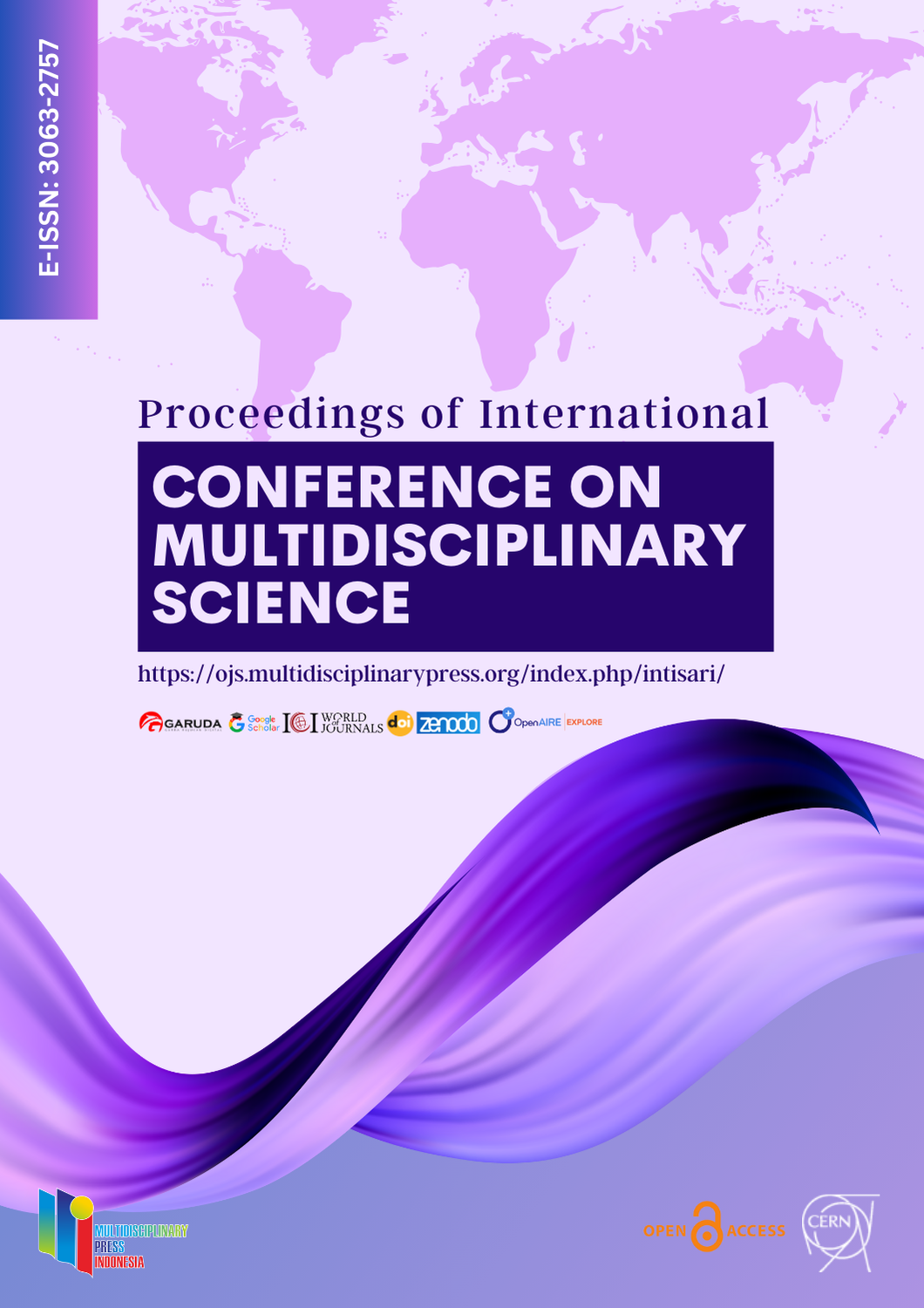Determinants of Organizational Commitment
Keywords:
Work Environment, Organizational Culture, Work Stress, Organizational CommitmentAbstract
This research aims to examine the influence of the work environment and organizational culture on organizational commitment, mediated by work stress at the Bank Indonesia Representative Office, North Sumatra Province. Bank Indonesia is an independent state institution tasked with considering economic policy in Indonesia. Apart from these functions, Bank Indonesia has a scope of internal work which is under the management of the Internal Management sector. One of the sections under Bank Indonesia's internal division is the Human Resources (HR) section. Bank Indonesia HR has several tasks in managing employees, one of which is processing employee health data. The results of this research are as follows: Organizational Culture has a positive and insignificant effect on Organizational Commitment with an original sample value of 0.129 and an ap value of 0.205. Organizational Culture has a negative and significant effect on Job Stress with a sample value of -0.498 and ap value of 0.000. Work Environment has a positive and insignificant effect on Organizational Commitment with an original sample value of 0.483 and ap value of 0.002. Work Environment has a negative and significant effect on Work Stress with an original sample value of -0.476 and ap value of 0.000. Job Stress has a negative and significant effect on Organizational Commitment with an original sample value of -0.107 and ap value of 0.308. Organizational Culture has a positive and significant effect on Organizational Commitment through Work Stress indirectly with an original sample value of 0.053 and ap value of 0.315. Work Environment has a positive and insignificant effect on Organizational Commitment through Job Stress with an original sample value of 0.051 and ap value of 0.306.
Downloads
References
Afandi. 2018. Manajemen Sumber Daya Manusia (Teori, Konsep dan Indikator). Nusa Media. Yogyakarta.
Allen, N.J. and Meyer J.P. (2016). The Measurement and Antecendents of Affective, Continuance and Normative Commitment to The Organization, Journal of Occupational Psychology. Vol.63. No.1. pp. 1-18
Andriyati Tanjung, Rahma Wahdiniwaty. 2019. "The Influence of Motivation on Employee Satisfaction nd the Impact of Employee Performance in Cooperation." International Conference on Business, Economic, Social Science, and Humanities – Economics, Business and Management Track (ICOBEST-EBM 2019) 134-137.
Dewi, N. (2015). Pengaruh Motivasi Kerja, Komunikasi dan Stres Kerja Terhadap Kepuasan Kerja Karyawan. Bali: UNUD.
Edison, Emron., dkk. 2016 Manajemen Sumber Daya Manusia. Alfabeta. Bandung
Fahmi, Irham. 2017. Manajemen Sumber Daya Manusia. Bandung : Alfabeta
Gulo, R. S., & Pardede, J. A. (2021). Stres Kerja Dengan Self Care Perawat Di Rumah Sakit Umum Sari Mutiara Medan. Jurnal Keperawatan Jiwa, 2(3).
Ghozali, Imam dan Hengky Latan (2015). Partial Least Squares Konsep Teknik dan Aplikasi dengan Program Smart PLS 3.0. Semarang: Universitas Diponegoro Semarang.
Ghozali, I. (2016). Structural Equation Modeling Metode Alternatif dengan Partial Least Square (PLS), Semarang : Badan Penerbit – UNDIP.
Rivai, Veithzal. (2018). Manajemen Sumber Daya Manusia untuk Perusahaan dari Teori ke Praktek. Cetakan Pertama. Jakarta: Murai Kencana.
Robbins, S.P dan Judge T.A. 2015. Perilaku Organisasi. Jakarta: Salemba Empat
Sianipar, A.R.B. dan Haryanti, K. 2014. Hubungan Komitmen Organisasi dan Kepuasan Kerja dengan Intensi Turnover pada Karyawan Bidang Produksi CV. X. Jurnal Psikodemensia. Vol. XIII, No.1 (98-114).
Sukanto., Indriyo., (2018), Manajemen Produksi, Edisi keempat, BPFE, Yogyakarta.
Sugiyono. (2016). Metode Penelitian Kuantitatif, Kualitatif dan R&D, Cetakan ke-24. Bandung: Alfabeta.
Downloads
Published
How to Cite
Issue
Section
Categories
License
Copyright (c) 2024 Andi Fajar Al Hadi, Muhammad Isa Indrawan

This work is licensed under a Creative Commons Attribution 4.0 International License.





